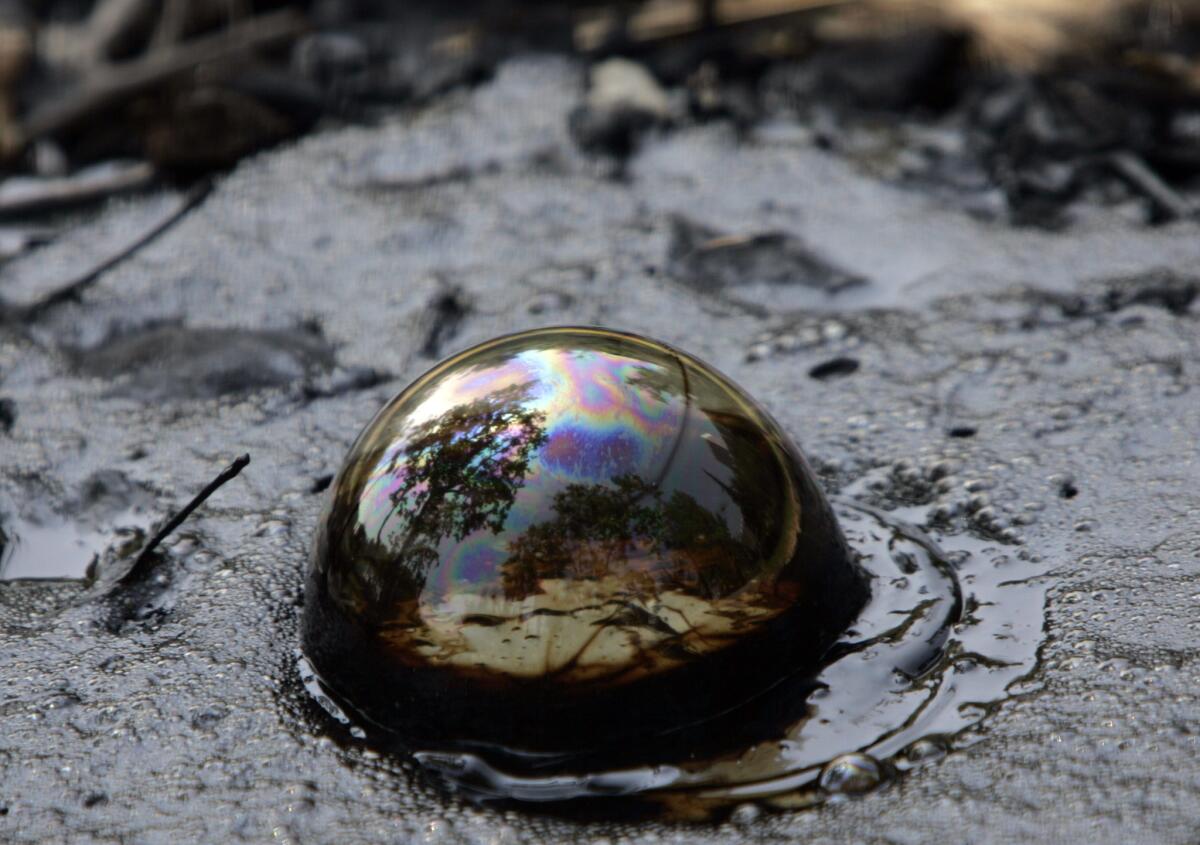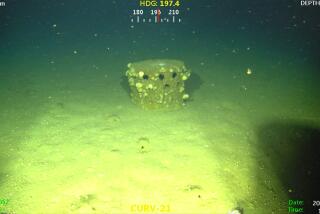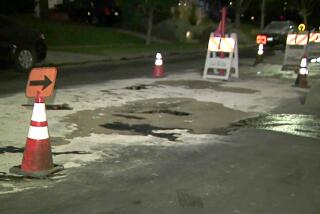Cop’s dive into La Brea Tar Pits ‘craziest thing I’ve ever done’

- Share via
With 16 years on the Los Angeles Police dive unit and several hundred trips into the watery depths searching for evidence, there isn’t much Sgt. David Mascarenas hasn’t experienced or seen.
But on Thursday, Mascarenas dived into an environment so inhospitable, he could barely see past his mask.
Twice he got stuck in gelatinous tar of the La Brea Tar Pits, his protective suit filled with muck, and the gas constantly bubbling up from the depths left him lightheaded with a burning throat.
His dive into the tar pit was part of a joint investigation into a cold case, but police would not describe or detail the evidence they were seeking.
“I’ve been under moving ships, in underwater reservoir sheds and I’ve been lowered into dams, beside piers, in pipelines and in swimming pools, you name it,” Mascarenas said. “This is by far the craziest thing I’ve ever done.”
At the La Brea Tar Pits, tar has seeped up from the ground for tens of thousands of years. Animals were trapped in the tar, and their bones were preserved over the millenniums.
During his hourlong hunt for evidence, Mascarenas did not come across any of those artifacts, but he was surprised to encounter discarded items -- cans, bottles, various pieces of mechanical equipment, a train rail and, perhaps most fittingly for the veteran diver, an anchor.
Mascarenas said he was surprised by the topography of the pit, including protrusions of tar that looked like mountains.
“The methane gas was pushing up tar in pinnacle-like fashion,” he said. “I would squeeze the cylindrical columns and they would pop and I heard the gas burp. The tar went all over my face and arms.”
During the dive, he said, he got in a couple of tight spots, once when his fins became stuck to the bottom and once when his communications line was pinned to a pipe.
“I could not see it or feel the line, so I slowly had to run my hands down, trying not to get stuck in the tar,” Mascarenas said. “It felt like it was forever, and my whole focus to be able to free myself because they weren’t going to be able to pull me up from the tether. I had to get out.”
Police had been planning the search for weeks.
At 6 a.m. Thursday, personnel with the LAPD’s Metropolitan Division, criminal gang homicide unit and help from Long Beach police and port police gathered in the 5800 block of Wilshire Boulevard.
Authorities deployed heavy equipment including metal detectors on land and underwater as well as high-powered magnets and sonar to map the area and video cameras to focus on possible items of interest.
Multiple items for the criminal investigation were recovered, showing that police would “go as far as we can to make it as difficult for a suspect to discard evidence,” Mascarenas said.
At the same time, he said, he hoped to retire before having to take another dive into the tar pit.
ALSO:
Jefferson Airplane drummer Joey Covington killed in car crash
Is 1,300-pound mako shark a record-breaker? Takes 60 days to find out
AEG exec: ‘You needed a scorecard’ to track Michael Jackson’s entourage
Twitter: @anblanx |Facebook | Google +
More to Read
Sign up for Essential California
The most important California stories and recommendations in your inbox every morning.
You may occasionally receive promotional content from the Los Angeles Times.










